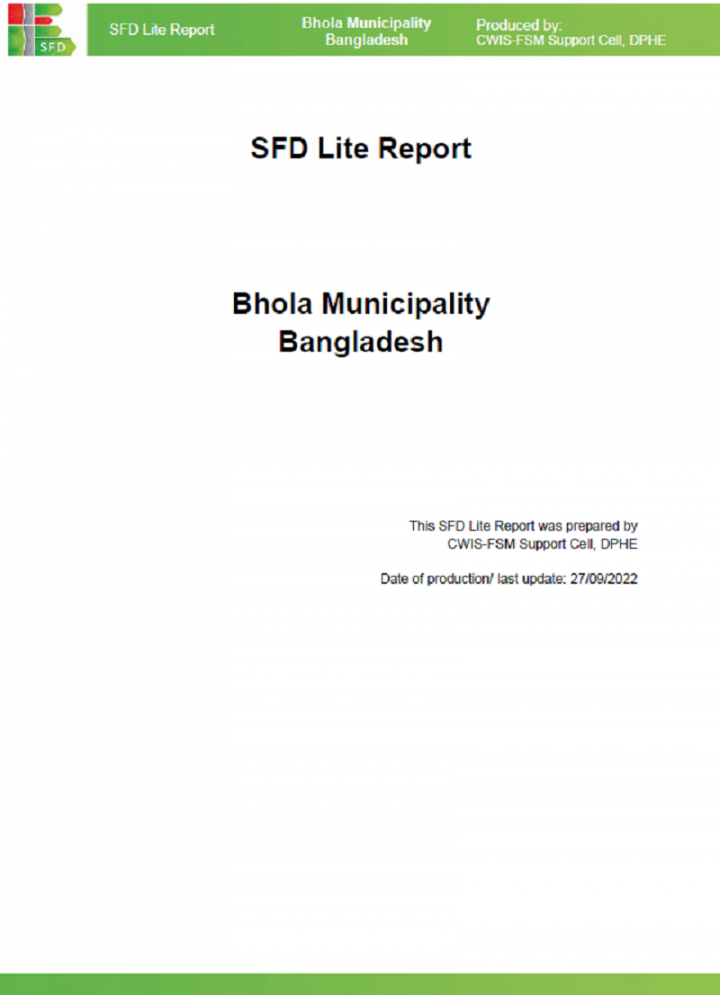SFD Lite Report – Bhola Municipality, Bangladesh (vn 2022) CWIS-FSM Support Cell, DPHE (2022)
Bhola is a fast-growing city, which is 185 km away from the Dhaka city. It is beside the Megna and Tetulia River and well connected with road and water. It is one of the oldest towns in the sub-continent and was declared Municipality in 1920. Bhola is one of the 53 district level Pourashava in the country.
According to the population census in 2011 by the Bangladesh Bureau of Statistics (BBS), the population of Bhola municipality was 47,477. The urban population growth in Bhola is 1.5% per year. Considering 10% floating population, such as farmers and traders, comes to the city every day, the present (2020) population is estimated to be around 59,713.
The outcome of the SFD graphic shows that only twenty six percent (26%) of the excreta flow is classified as safely managed, and the remaining seventy four percent (74%) is classified as unsafely managed (Figure 1). The unsafely managed excreta originate from wastewater not delivered to treatment (2%), Faecal Sludge (FS) both contained and not contained - not delivered to treatment (47%), FS not contained - not emptied (23%) and 3% of supernatant not delivered to treatment. Thus, the safely managed excreta originate from FS contained - not emptied (26%).
Bibliographic information
CWIS-FSM Support Cell, DPHE (2022). SFD Lite Report – Bhola Municipality, Bangladesh (vn 2022) CWIS-FSM Support Cell, DPHE
Filter / Tags
Politicians and local decision makersPractitionersEnglishSFD Report
Downloads
SFD Lite Report – Bhola Municipality, Bangladesh (vn 2022)
Type: application/pdf
Size: 1.4 MB

